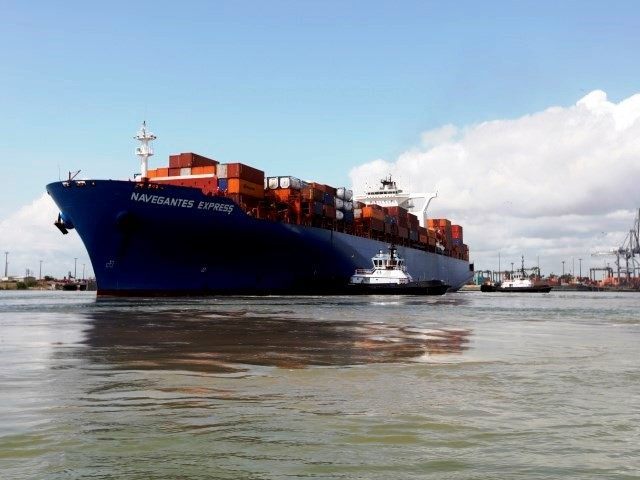HOUSTON, Texas—Monetary expert Dr. C. Fred Bergsten recently spoke at the Baker Institute at Rice University about the impact of the Plaza Accord on exports. Dr. Bergsten said that Houston, Harris County, and the state of Texas lead the nation in exports and expressed concerns about the impact of a strengthening dollar on U.S. exports.
The Plaza Accord was a pro-growth agreement signed in 1985 by the G-5 nations of West Germany, France, the United States, Japan and the United Kingdom. The program, signed at the Plaza Hotel in New York City, was designed to force the United States to devalue the American dollar.
In 1986 the US dollar was vastly over valued; our Congress was alive with Protectionist high tariff proposals; and there were major trade imbalances. Then secretary of the treasury under President Ronald Reagan, James A. Baker held a G-5 meeting and started international cooperation to lower the dollar value; attack inflation; correct the trade imbalances; and remove restrictions to free trade. All these factors harmed Texas exports by putting us at a major trade disadvantage.
Dr. Bergsten notes the US dollar in the past 18 months has appreciated 20%. He sees a strong dollar in the coming year which will result in a further substantial appreciation of the dollar. There has been no replicated Plaza Accord in the past 30 years.
Bergsten points out the lessons to be learned from the Plaza and later Louvre Accords:
- The United States must lead! There is no example of successful global monetary cooperation without a lead from the United States. The United States will remain primer inter pares for the foreseeable future, especially as the Eurozone continues to falter and China maintains a measured pace in internationalizing the RMB.
- The other key players must cooperate. A de facto G-3 (United States, Eurozone, and China) or G-4 (adding Japan) is thus necessary to restore any prospect for efficient international monetary cooperation.
- Domestic politics, especially trade policy, drive most major international monetary initiatives. The soaring dollar has sharply deteriorated the US price competitiveness which results in rapidly growing trade and current account deficits. Should the administration by default let the Congress control trade and currency policy? Currently there is intense Congressional efforts to legislate substantial changes in the US currency policy during the recent debates over Trade Promotion Authority (TPA) and Trans-Pacific Partnership (TPP) were motivated largely by the rise of the US trade and current account deficits to record levels-double those, as a share of GDP, that prompted the Plaza in 1985.
- The Fed must be with you (as indicated privately by Secretary Baker at the time). US law authorizes the secretary of treasury to determine the country’s exchange rate policy but the Federal Reserve views its independency in conducting monetary policy as providing it with autonomy in the currency area as well.
- Exchange rates are less difficult to coordinate international than macroeconomic or structured money policies.
Is there a need for Plaza today?
Cline’s model indicates that every 10% rise in the dollar will add $350 billion to the trade deficit and reduce the level of US economic activity by about 2% ( with a corresponding loss of 1.5 to 2 million jobs, although easier monetary policy could produce a full offset unless the zero lower bound for interest rates has already been reached).
A dollar rise of 20% from mid-2015 levels-which would imply euro at $0.90 (as of 2000), a yen at about 145-150 (as in 1998), and an RMB around 7.5:1 (as before 2007)-would take the current account imbalance close to $2 trillion per year by 2020, with output and job losses double those of 10%.This would call for action in some quarters.
We know about two major dollar appreciations of the post war period from 1978 to 1985 and 1995 to 2002, each took seven years. The current appreciation has proceeded for only four years so there could still be a good deal more appreciation in store.
Editor’s Note: Dr. C. Fred Bergsten is a Senior Fellow, Director Emeritus and founding director of the Peterson Institute for International Economics, formerly known as the Institute for International Economics. He served as assistant secretary for international affairs at the U.S. Treasury Department under the Carter Administration and undersecretary of monetary affairs during the Reagan Administration. He represented the U.S. on the G-5 Deputies and in preparing for the G-7 summits. His complete bio is available on the Peterson Institute’s website.

COMMENTS
Please let us know if you're having issues with commenting.